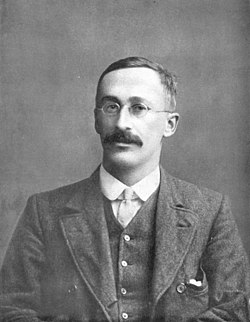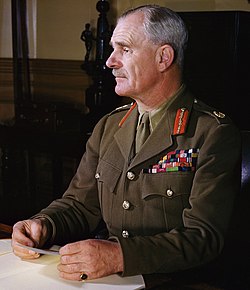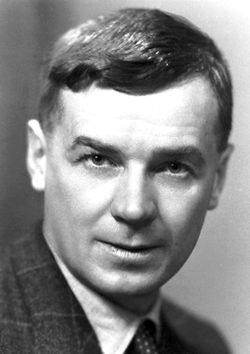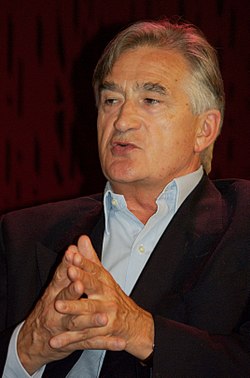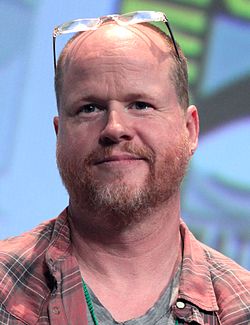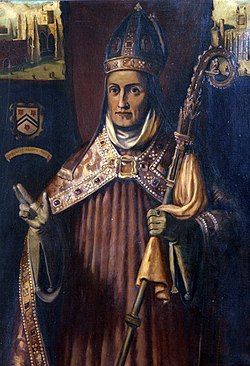
Old Wykehamists are former pupils of Winchester College, so called in memory of the school's founder, William of Wykeham. [1] [2] He was Bishop of Winchester and Lord Chancellor of England. He used the wealth these positions gave him to establish both the school in 1382 and a university college, New College, Oxford, in 1379; both of them were set up to provide an education for 70 scholars. Winchester College opened in 1394. [3] William of Wykeham provided that up to two pupils a year who could prove they were his descendants could attend the school at its expense; they were known as Consanguineus Fundatoris, "Founder's Kin". [4] Ranulph Twisleton-Wykeham-Fiennes records that the tradition ended in 1868, by which time fourteen members of his family had received a free education. [5] At first only a small number of pupils other than scholars were admitted; by the 15th century the school had around 100 pupils in total, nominally the 70 scholars, 16 choirboys and the rest "commoners". Demand for places for commoners was high, and though at first restricted, numbers gradually rose. [6] From the 1860s, ten boarding houses, each for up to sixty pupils, were added, greatly increasing the school's capacity. [7] By 2020, the number of pupils had risen to 690. [8]
Contents
- Fourteenth century
- Fifteenth century
- Sixteenth century
- Seventeenth century
- Eighteenth century
- Nineteenth century
- 1800–1819
- 1820–1839
- 1840–1859
- 1860–1869
- 1870–1879
- 1880–1889
- 1890–1899
- Twentieth century
- 1900–1909
- 1910–1919
- 1920–1929
- 1930–1939
- 1940–1949
- 1950–1959
- 1960–1969
- 1970–1979
- 1980–1989
- Victoria Cross and George Cross holders
- See also
- References
- Notes
- Cited sources
The school's traditions include a 600-year-old ceremony in which the Warden, wearing the Founder's Ring, admits each new Scholar; "Illumina", an autumn celebration, in which candles are placed into niches all over the medieval walls around the playing fields; and "Morning Hills", held once a year, when all the school's pupils and teachers climb St Catherine's Hill for a roll call and prayers. [3] The Ad Portas ("At the Gates") ceremony is held as an honour for distinguished guests and alumni; all members of the school stand in the medieval Chamber Court to hear the speeches. [3] In 2011, nineteen alumni (and six more honoured in their absence), all Fellows of the Royal Society or Fellows of the British Academy, were welcomed Ad Portas, with speeches in Latin and English. [9] [10]
Among the Old Wykehamists listed here are four archbishops, including one of the school's earliest pupils, Henry Chichele; four field marshals; commanders of both Fighter Command and Bomber Command during the Second World War—Hugh Dowding and Charles Portal, respectively; and two Viceroys of India, Archibald Wavell and Frederic Thesiger. The many politicians include six Chancellors of the Exchequer: Henry Addington for the Tory Party; Robert Lowe for the Liberal Party; Stafford Cripps and Hugh Gaitskell for the Labour Party; and Geoffrey Howe and Rishi Sunak for the Conservative Party. Of these, Addington and Sunak went on to become Prime Minister.
The individuals listed are classified by decade or century of birth, with a note of how each distinguished himself. Those who won military medals are listed at the foot of the page; six Old Wykehamists have won Britain's highest military award, the Victoria Cross. Individuals are included here only if they have distinguished themselves at the highest level within their profession or achieved national recognition. Thus, for example, politicians are included only if they are members of the privy council or have a cabinet position; sportspeople, only if they have distinguished themselves in a national competition or represented their country; for soldiers, that they have reached a rank equivalent to major-general, or won a gallantry award; actors, that they have been nominated for the highest honour in the field, such as an Academy or Olivier Award; members of a profession, that they are recognised as distinguished by their profession's leading institution, such as being a fellow of the Royal Society or the Royal Academy of Music. As another example, national recognition in business means being chair or chief executive of a FTSE 100 company.













